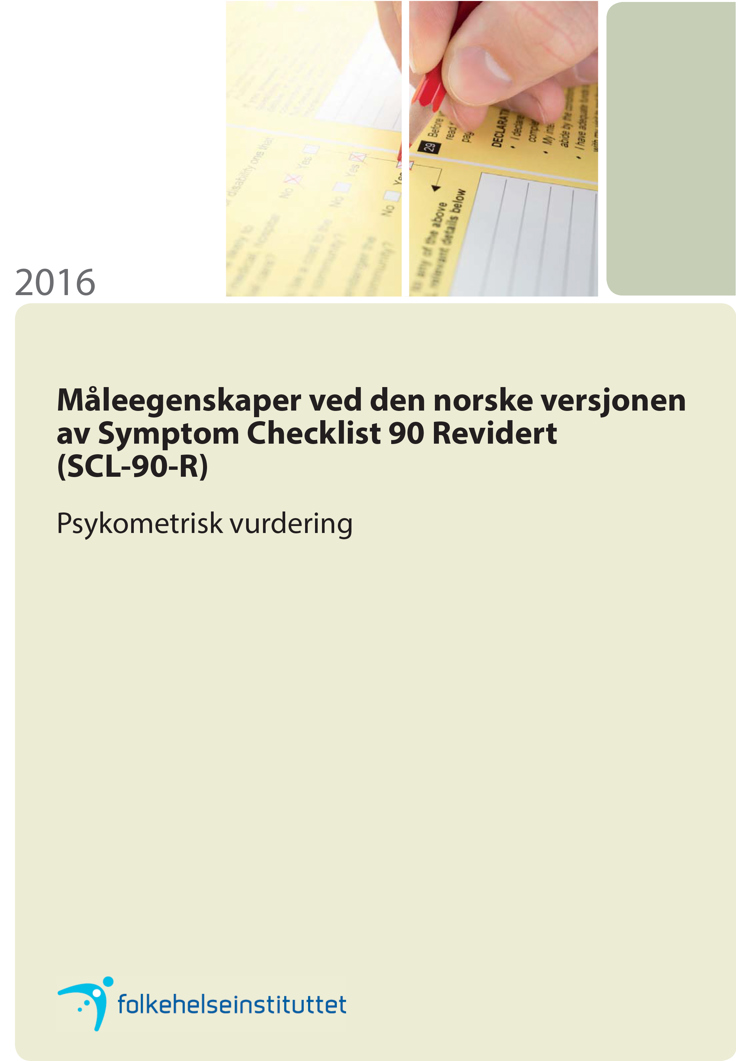Psychometric assessment
Psychometric properties of Norwegian version of Symptom Checklist 90 Revised (SCL-90-R)
Report
|Published
This report is an evaluation of the Symptom Checklist 90 Revised (SCL-90-R). SCL-90-R is self report based, with 90 questions assessing mental health symptoms during the last week. The responses can be divided into broad symptom indexes and more specific symptom scales.
Download
Key message
The Knowledge Centre at the Norwegian Institute of Public Health was commissioned by the Norwegian Directorate of Health to review the psychometric properties (reliability, validity and norms) of psychological tests and psychiatric measures in Norwegian.
Method
Databases were searched for studies using SCL-90 in Norwegian adult with samples N>100. The search was last updated in March 2016. Two researchers independently identified references, considered their relevance according to the inclusion criteria, and extracted data.
Results
We included 28 publications, four population based studies and 24 clinical studies. The included studies were published between 1992 and 2013 and had between 100 and 2237 participants. There were 10 studies with more than one assessment point. Three studies reported data on norms, 22 studies the mean of one or more scales, six studies had data on reliability, seven studies had data on construct validity, and eight studies data on external validity. The Norwegian norms are based on adequate samples. Reliability i.e. internal consistency is well documented. Construct validity is also adequate but significantly related to the personality trait neuroticism and level of distress. The nine symptom scales concur to a limited extent with clinical evaluations, which seriously limits external validity. Few studies reported follow up data, but the limited data indicate that SCL-90-R is adequately related to other measures of self-reported improvement.
Conclusion
The Norwegian version of SCL-90-R is adequately adapted for use in a Norwegian population. SCL-90-R is well designed for assessing overall mental distress, and changes in overall distress, but appears less suitable for diagnostic evaluations, particularly for persons with high levels of distress.


